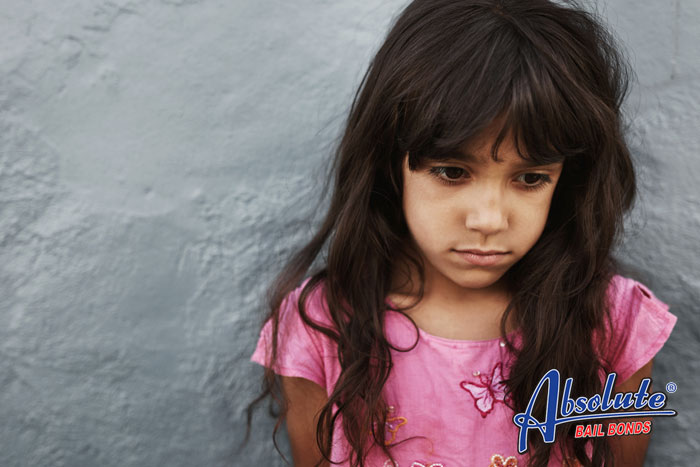
What is Statutory Rape? Statutory Rape Laws and Charges
Teenagers are full of two things. Hormones and emotions. The combination causes them to make questionable life choices, which includes engaging in sex. When parents learn that their teenage child has become sexually active they often find themselves worrying if their child can be charged with statutory rape.
Recent changes to California’s laws about sex with minors have made the issue even more confusing than it is in some other states.
What is Statutory Rape?
Strictly speaking, statutory rape has nothing to do about sexual consent. In statutory rape cases, both parties are usually willing. These cases aren’t about the willingness of both partners but whether they’re able to cope with the emotional and physical ramifications that go hand in hand with a sexual relationship.
According to the law, statutory rape takes place when someone has sex with a minor, who is otherwise referred to as a person who hasn’t reached the age of consent.
Is it Possible for a Minor to be Charged with Statutory Rape?
The question of whether it’s possible for two minors to be accused of statutory rape doesn’t have a clear legal answer.
According to California Penal Code Section 261.5, statutory rape takes place whenever someone has sex with someone who hasn’t reached their eighteenth birthday. According to that, if a sixteen-year-old couple decides to have sex, both of them can be charged with statutory rape.
The problem is that for the charges to stick, the court has to determine which member of the couple is the victim and which is the aggressor, something that’s nearly impossible to do when both are minors. Due to the legal complexities of the situation, the charges are usually dropped and the court lets the parents decide how to handle the matter.
Penalties for Statutory Rape in California
Statutory rape charges in California are a serious matter. Statutory rape is one of the state’s many famous wobbler offenses. No two cases are handled the same way, which can make it difficult to guess what the final results will be. The most extreme cases can result in a sentence that includes 3 years in jail as well as a $10,000 fine.
Sometimes the court requires that the defendant register as a sex offender, but there are also situations where that hasn’t happened. It largely depends on the age of the two people involved in the case as well as the type of relationship they’re engaged in.
The best way to make sure you never have to unravel the complexities of statutory rape is by making sure your sexual partner is always over 18 years old.

The Long-Lasting Consequences of Drunk Driving in California
Like all other states, California has taken a hard stance on drunk driving. It isn’t tolerated. If you’re caught behind the wheel after having just a little too much to drink, you’ll face steep consequences that will have a major impact on the overall quality of your life.
California’s Legal Limit
California has different legal limits for different types of drivers. For the average, adult driver in California, anything over a blood alcohol count (BAC) of 0.08% is considered too high to legally drive. Drivers who haven’t reached their 21st birthday, anything over 0.05% is considered a DUI. Commercial drivers as well as drivers who are involved with a ride-share program aren’t allowed to get behind the wheel if their BAC is above 0.04%
If you are pulled over and the officer believes you’ve been drinking, they’ll likely administer a breath test that measures your BAC. If the BAC is considered close, but not quite at the legal limit, it’s likely you’ll still be arrested. The reason for this is because it can take a little time for the true BAC to be accurate. You’ll receive a second test at the jail. By this point, the BAC level will be accurate. If it’s above the legal limit, the officer will go through with the arrest. Both of the BAC tests are admissible in court. In many cases, the first test is a breath test and the second test is taken via a blood draw.
Penalties of Driving Drunk in California
California lawmakers aren’t playing around when it comes to drunk drivers. The penalties are steep and were designed to scare people into only getting behind the wheel while they’re sober. The penalties become more severe each time you’re charged with a DUI.
First Offense
The first time you’re caught driving while under the influence, the maximum amount of time you can spend in county jail is six months. You’ll also be charged fines that will range from $390-$1,000. Your license will be suspended and you won’t be able to drive for up to six months. Your ignition can be locked for 6 months to one full year, and you’ll only be allowed to drive on a restricted license during that time.
Second Offense
The second DUI charge means a minimum of 92 hours and a maximum of 1 full year in a county jail. The court can charge you fines that range from $390-$1,000. You can lose your license for a full two years, making it difficult to work, especially if you live in a rural area. After you get a restricted license, the court can limit your driving with an ignition lock that will remain on your vehicle for up to one year.
Third Offense
The third time you’re found guilty of DUI charges, you’ll be sentenced to as little as 120 days or as long as one year in jail. You’ll get charged at least $1,800 in fines. You’ll also lose your license for 3 years and potentially have an ignition lock installed on your vehicle for an additional 2 years.
California lawmakers have arranged things so that each DUI conviction remains on your record for a full 10 years.
In addition to actual DUI penalties, if you were in an accident while driving drunk, you will also face any charges that were incurred during the accident. This can include minor traffic offenses or vehicular manslaughter.
Medications Can Mess up Your Life
There are several medications that can play havoc on your body when you mix them with alcohol. The problem with many medications, even some over-the-counter allergy medications is that they alter the way your body absorbs alcohol. This means that if you go to the bar and have your normal amount of alcohol, and the amount that in most cases allows you to legally drive home, the medication could have created a significantly higher blood alcohol level and you’ll be arrested for DUI. Several people have had their lives destroyed because they didn’t realize how badly the medication and alcohol would react.
If you’re on medication, it’s in your best interest to not get behind the wheel if you have accidentally mixed the alcohol and the medication. Call a friend, get a room, hire a taxi. Do anything other than getting in your car.

The Reality of Prop. 25
The November third election is a big one for California voters. Not only do they have to decide which candidate they want in the Oval Office, they also must decide if they want to vote for or against, Proposal 25.
What is Proposal 25
The goal of Prop 25 is to end the current cash bail system. If it passes, California would be the first state to do away with this system. Instead of using a tried and true cash bail system, the state would create a system that would run a “risk-assessment” on suspects. Each suspect would be assigned a risk which would categorize them as:
- Low-risk
- Medium-risk
- High-risk
Low-risk suspects would be individuals that, based solely on a generic test, would be determined a low-risk for not appearing in court and who were deemed a minimal risk to society. They would be promptly released from jail.
On the other hand, someone who is considered high-risk might not show up for their court dates and they’re deemed a threat to society. These individuals would not be released. Eventually, high-risk individuals would get a few moments before a judge, at which point they’d be allowed to explain why the high-risk assessment is unfair.
Individuals who fall into the medium-risk category pose a problem. They might or might not appear in court. And they might, in the right circumstances, be a threat to society. It’s not entirely clear how the courts would be expected to deal with medium-risk individuals, other than some lawmakers stating that cases would depend on the local court’s rules.
Individuals who have been charged with misdemeanors would be exempt from the risk exceptions, though lawmakers are quick to point out that there will be exceptions.
The Problem with Prop 25
At first glance, Prop 25 doesn’t seem like a bad idea. It has the potential to provide individuals with limited income who have created minor offenses with the ability to get out of jail. That’s a good thing, right? Maybe not.
First, even low-income individuals do have the opportunity to be released from jail. If they don’t have the money needed to bail themselves out, they can contact local family-owned businesses like Absolute Bail Bonds where they can take advantage of flexible payment plans that include zero% interest, 20% discounts, and low-payments.
The biggest problem with Prop 25 is that it doesn’t appear that anyone has a good way to run the risk assessments. Fans of Prop 25 haven’t been able to provide much information about how the assessments will be run or how they’ll be evaluated.
The current system provides the court to look closely at each person’s criminal and community history. This information is used to determine how much money is needed to convince the person to stay out of trouble and attend all of their court appearances. The fact that bail can be revoked if the person does violate the terms of their release by engaging with certain people, leaving town, or committing a crime provides further incentive for everyone to walk the straight and narrow path while they wait for their case to reach its conclusion.
The biggest concern with Prop 25 is that while fans of the proposed law are convinced it will work, they’re unable to provide any detailed information about how the risk assessment will be conducted. When you read the bill, all it says is that the risk assessment will use “tools shall be demonstrated by scientific research to be accurate and reliable.”
That sounds a lot like the type of system internet dating sites use, and everyone who has used one of those sites knows that while love matches are possible, most of the connections are massive duds. Does anyone really want to have a bail system that has the same kind of success rate as the average internet dating service?

False Allegations of Child Abuse in California
Child abuse laws are designed to protect children from being hurt. They’re good laws that make a lot of sense. Unfortunately, they are also laws that can be used against people, particularly parents who are engaged in a child custody dispute. It’s not unheard of for one parent to accuse the other parent of child abuse in order to obtain full custody of the children. It’s an accusation that can deal a lasting blow to both sides.
While there have been instances of men lodging false child abuse claims against women, it’s far more common for a woman to falsely accuse a man of child abuse. Data collected by the Stop Abusive and Violent Environments (SAVE) indicates that 85% of all child abuse protective orders are filed by men and issued against men. One lawyer estimates that approximately 90% of those that are filed during a divorce and that mention child abuse are a tactical move to gain custody of the children.
California’s family court judges are legally obligated to take all child abuse accusations seriously. The last thing anyone wants is for a child to be hurt because the court failed to act. As soon as one parent accuses the other of child abuse, the court will take action, usually siding with the parent who made the accusation. If you are the one accused of abusing children, you shouldn’t assume that you’re promptly out of luck. You do have to be willing to take a defensive stance.
It’s in your best interest to demand that the court investigate the accusations. Be prepared for this to involve an in-depth and invasive investigation into your background. Court-appointed experts will interview several people which can include:
- Your children
- Family
- Friendly
- Doctors
- Teachers
The process is time-consuming and often frustrating. When you feel impatient, remind yourself that you’re doing this for the good of your child.
The topic of false child abuse accusations in California is addressed in Family Code section 3027. According to the code, once it’s proven that the allegations filed against you were knowingly false, you have the right to seek monetary compensation for your court fees and additional costs that were connected to proving your innocence. The result of the investigation could lead to a significant change in which parent is granted custody of the children.

Mail Theft in California
Lawmakers aren’t fooling around when it comes to people messing with other people’s mail. The issue of mail theft is explored in US Code Section 1708. It’s important to understand that because mail theft involves the United States Postal Service, a federal agency, mail theft is considered a federal offense. The State of California will likely add a few charges as well.
What is Mail Theft
If you read US Code 18 Section 1708 you’ll learn that taking any piece of mail that wasn’t sent to you is considered mail theft. It doesn’t matter if the mail is taken directly from a post office employee, snatched from a mailbox, or snuck of a mail truck. It’s all mail theft.
Additional Offenses That Are Frequently Added to Mail Theft Charges
It’s rare for a person to be charged with just mail theft and nothing else. Identity theft is one the charge that’s most commonly linked to mail theft. Identity theft charges are usually added if the stolen mail included:
- Birthdates
- Social security numbers
- Birth certificates
- Tax I.D. numbers
- Banking/credit card account information
- Death certificate information
- School I.D. numbers
- Driver’s license numbers
Other charges that have been added to mail theft include:
- Assault
- Breaking and entering
- Embezzlement
- Deception
- Fraud
Federal Consequences of Mail Fraud
The government is messing around with mail theft. They want everyone to think twice about what they could lose before they snatch up a piece of unattended mail. If you’re found guilty of federal mail fraud, the maximum sentence includes:
- Up to $250,000 in fines
- Up to 5 years in a federal prison
Getting Charged with Mail Theft in California
California lawmakers are serious about mail theft. Anyone who is caught stealing someone else’s mail will likely find that in addition to dealing with the federal court, they’ll also be charged by the state. California’s Penal Code 530.5e PC states that “every person who commits mail theft, as defined in Section 1708 of Title 18 of the United States Code, is guilty of a public offense, and upon conviction therefor shall be punished by a fine, by imprisonment in a county jail not to exceed one year, or by both a fine and imprisonment.”
The interesting thing about California and mail theft is that it is one of the only theft type crimes where the punishment isn’t determined by the monetary amount of the crime. The state doesn’t care if you stole a couple of thousand dollars worth of mailed paychecks from your neighbor or if you simply swiped a handful of sales flyers from an unattended mailbag. The consequences will be the same.
What if Mail was Delivered to the Wrong Person?
If a postal employee delivers the someone else’s mail to you, don’t panic and assume that you’re going to be charged with mail theft. This is an honest mistake. It’s also something you need to take care of immediately. As soon as you discover the error, contact the post office, and alert them to the situation. You’ll be instructed on how to return the mail to the post office. What you shouldn’t do is throw the mail away or to put the mail in your neighbor’s mailbox.


